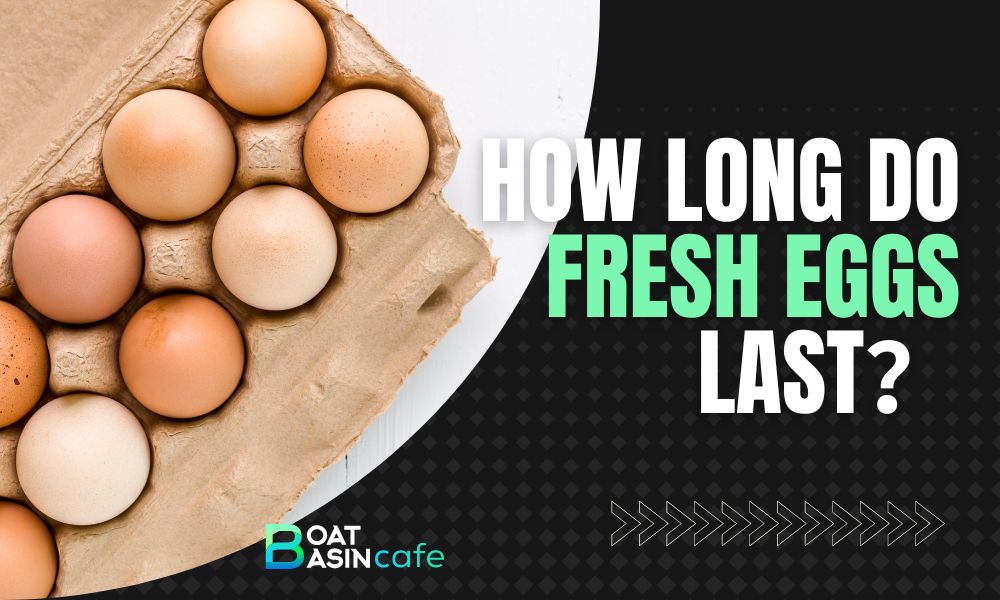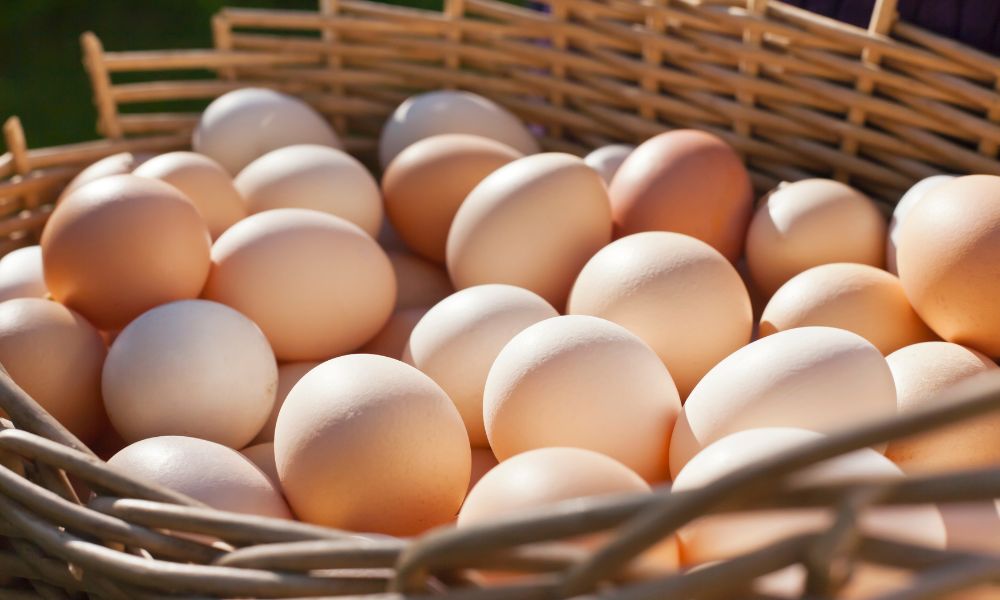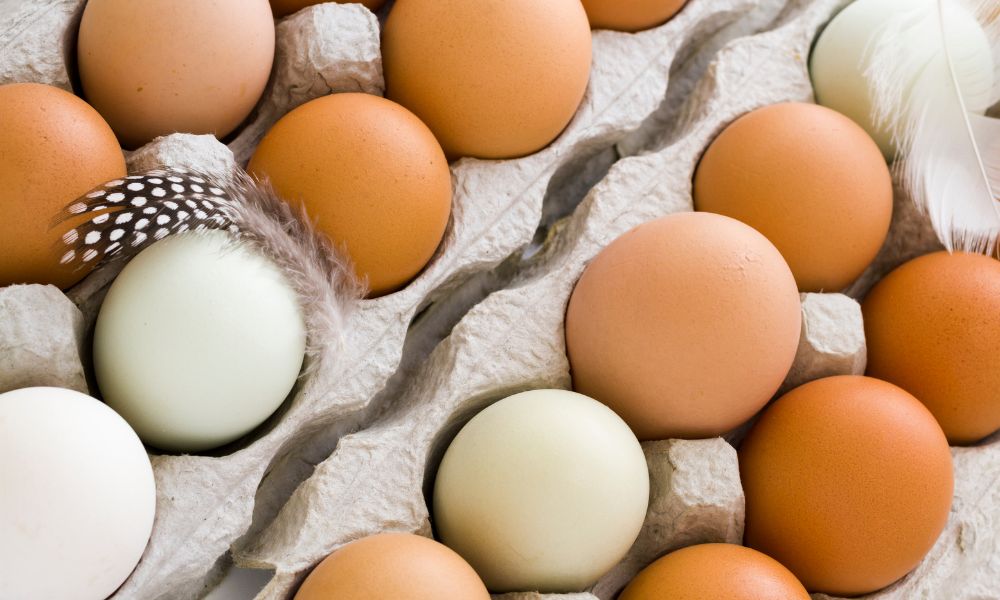As a food enthusiast and a home cook, I can’t stress enough the importance of fresh eggs in the culinary world. From perfectly scrambled eggs for breakfast to moist, fluffy cakes for dessert, fresh eggs are a versatile and indispensable ingredient in many delightful dishes.
With that in mind, knowing the shelf life and proper storage of fresh eggs is essential to maintain their quality, taste, and most importantly, food safety.

Why is Shelf Life Important?
Like any perishable food item, the shelf life of fresh eggs is crucial to ensure food safety and quality. Consuming eggs past their prime could lead to foodborne illnesses and an unpleasant culinary experience. The potential risks associated with spoiled or expired eggs include salmonella poisoning and other foodborne illnesses.
By knowing the shelf life of fresh eggs and the signs of freshness and spoilage, you can avoid these unwanted risks and enjoy delicious egg dishes worry-free.
Factors Affecting Shelf Life
Various factors determine the shelf life of fresh eggs, and understanding these factors can help you maximize their storage time and enjoy them at their best possible quality. Key factors affecting the shelf life of fresh eggs are:
🌡️Temperature
Temperature plays a significant role in the longevity of fresh eggs. Eggs stored at room temperature will spoil much faster than those kept in the refrigerator. I’ve learned from my experiments that storing fresh eggs in the refrigerator can prolong their freshness by up to five times compared to storing them at room temperature.
💧Humidity
Humidity is another crucial factor influencing egg shelf life. Fresh eggs tend to lose moisture over time and dry out, reducing their quality and freshness. High humidity, on the other hand, can encourage bacterial growth and spoilage. To maintain egg freshness, storing them in a cool and moderately humid environment is essential.
👩🍳Handling and Care
Proper handling and care of fresh eggs are vital for their longevity. Carefully handling eggs to avoid breaking or cracking the shell can prevent bacterial contamination, which in turn, ensures optimal freshness. Additionally, washing or wiping eggs might remove their protective layer, making them susceptible to spoilage.
How Long Do Fresh Eggs Last?
The shelf life of fresh eggs can vary based on factors such as their source, handling, and storage conditions. On average, fresh eggs can last for up to three to five weeks in the refrigerator.
Nevertheless, it’s crucial to check the expiration date on the egg carton to ensure your eggs are safe to consume. What I find useful to avoid confusion is referencing the Julian date on the carton to determine egg freshness. This date is a numerical representation of the day the eggs were packed, with 001 representing January 1st and 365 representing December 31st.
Signs of Freshness and Spoilage

Knowing the signs of egg freshness and spoilage can help you avoid consuming spoiled eggs. I tend to look for the following indicators to determine whether a fresh egg is still good to use:
Visual Indicators
- Firm yolk: A fresh egg has a bright, firm yolk that holds its shape when cracked.
- Clear egg white: In fresh eggs, the egg white or albumen should be clear and slightly cloudy. A runny or watery egg white may indicate that the egg is no longer fresh.
Signs of Spoilage
- Off smells: A spoiled or rotten egg will often emit a distinct sulfur-like odor that is difficult to miss.
- Unusual appearance: Discolored yolk, mold, or presence of black specks are telltale signs of egg spoilage or bacterial contamination.
Proper Storage of Fresh Eggs

To ensure the freshness and quality of your eggs, it’s essential to store them in the correct conditions. I’ve found that following these expert-advised storage guidelines help prolong the freshness of my eggs and ensure their quality:
Temperature and Humidity
Optimal fresh eggs storage conditions require a cool and moderately humid environment. Storing eggs in the refrigerator at a temperature between 35°F to 45°F (2°C to 7°C) and a humidity level around 70% helps maintain their freshness for longer periods.
Positioning
The best way to store fresh eggs is to position them on the refrigerator’s middle shelf, away from temperature fluctuations caused by the fridge door or freezer. Keeping them in their original carton also helps in maintaining an even temperature and retaining their freshness.
Packaging
Another valuable lesson I’ve learned is to keep the eggs in their original carton instead of transferring them to a separate fresh eggs storage container. Egg cartons work as both an insulator and a moisture barrier, protecting the eggs from drying out or absorbing unwanted odors from the refrigerator.
In my culinary journey, where I delve into various methods of storing food items, I’ve discovered that there are several ways to store and preserve fresh eggs for more extended periods. Storing fresh eggs without refrigeration, such as in a root cellar, or using alternative methods like water glassing, or oiling can preserve eggs for extended periods. For the best way to store fresh eggs for a week, consider keeping them in their original carton at a stable, cool, and moderately humid environment.
Understanding the shelf life of fresh eggs and proper storage techniques could be applied practically for storing different types of egg preparations, such as hard-boiled eggs, deviled eggs, organic eggs, and peeled eggs. By following these proven tips and tricks, you can enjoy fresh, delicious eggs for weeks and even months!
Conclusion
By understanding the shelf life and storage of fresh eggs, you can ensure the safety and quality of the eggs you consume at home. Remember to always check for signs of freshness and spoilage, handle your eggs with care, and store them in optimal conditions to maintain their longevity.
From delightful breakfast dishes to mouthwatering desserts, fresh eggs can elevate any culinary creation, and it’s up to us to make informed choices to get the best out of our eggs.








